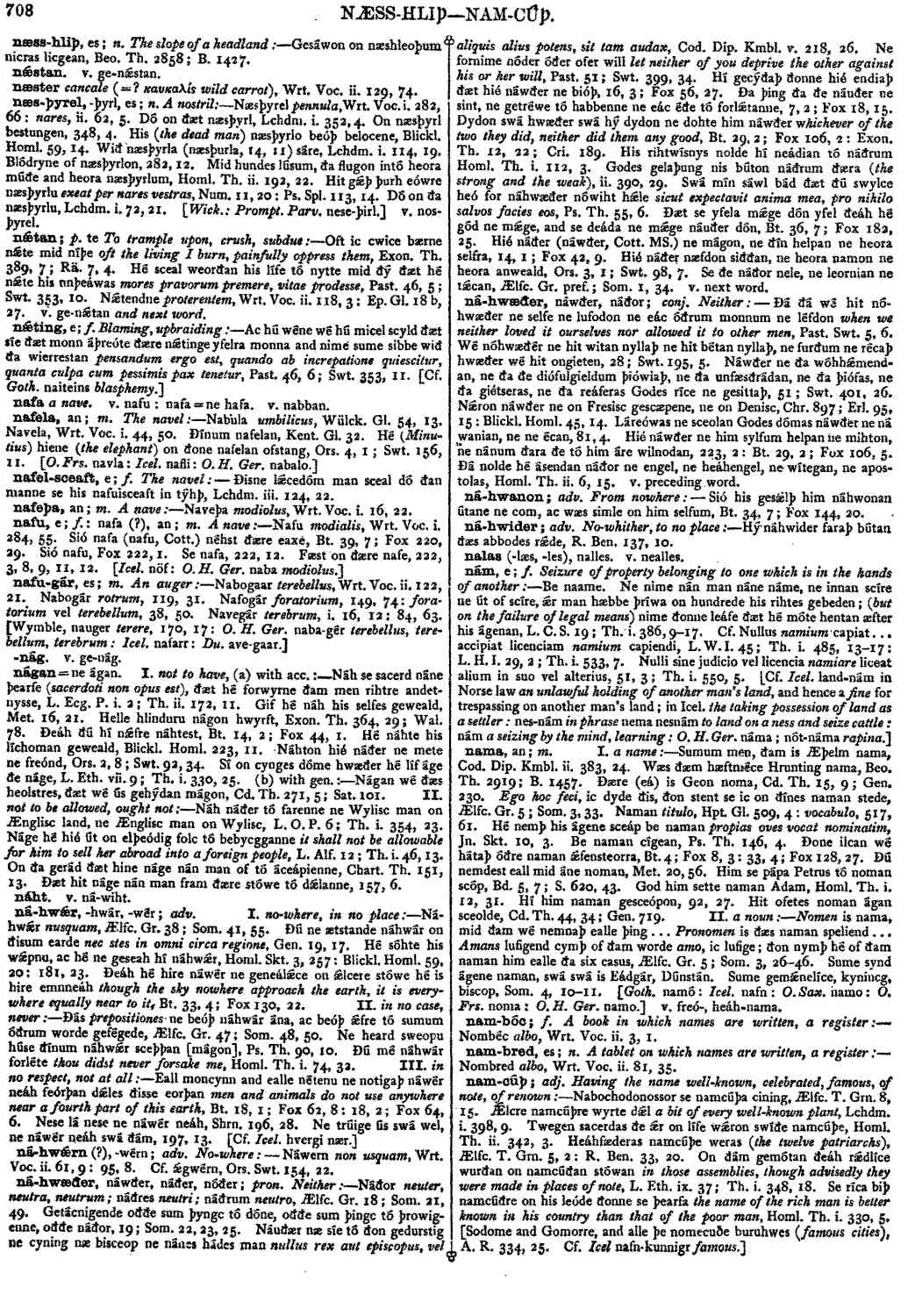nágan
- verb [ preterite-present ]
-
Náh se sacerd náne þearfe (
sacerdoti non opus est
),ðæt hé forwyrne ðam men rihtre andetnysse,
- L. Ecg. P. i. 2 ;
- Th. ii. 172, 11.
-
Gif hé náh his selfes geweald,
- Met. 16, 21.
-
Helle hlinduru nágon hwyrft,
- Exon. Th. 364, 29 ;
- Wal. 78.
-
Ðeáh ðú hí nǽfre náhtest,
- Bt. 14, 2 ;
- Fox 44, 1.
-
Hé náhte his líchoman geweald,
- Blickl. Homl. 223, 11.
-
Náhton hié náðer ne mete ne freónd,
- Ors. 2, 8 ;
- Swt. 92, 34.
-
Sí on cynges dóme hwæðer hé líf áge ðe náge,
- L. Eth. vii. 9 ;
- Th. i. 330, 25.
-
Nágan wé ðæs heolstres, ðæt wé ús gehýdan mágon,
- Cd. Th. 271, 5 ;
- Sat. 101.
-
Náh náðer tó farenne ne Wylisc man on Ænglisc land, ne Ænglisc man on Wylisc,
- L. O. P. 6 ;
- Th. i. 354 ;
- 23.
-
Náge hé hié út on elþeódig folc tó bebycgganne
it shall not be allowable for him to sell her abroad into a foreign people,
- L. Alf. 12 ;
- Th. i. 46, 13.
-
On ða gerád ðæt hine náge nán man of tó áceápienne,
- Chart. Th. 151, 13.
-
Ðæt hit náge nán man fram ðære stówe tó dǽlanne,
- 157, 6.
Bosworth, Joseph. “nágan.” In An Anglo-Saxon Dictionary Online, edited by Thomas Northcote Toller, Christ Sean, and Ondřej Tichy. Prague: Faculty of Arts, Charles University, 2014. https://bosworthtoller.com/23414.
Checked: 1